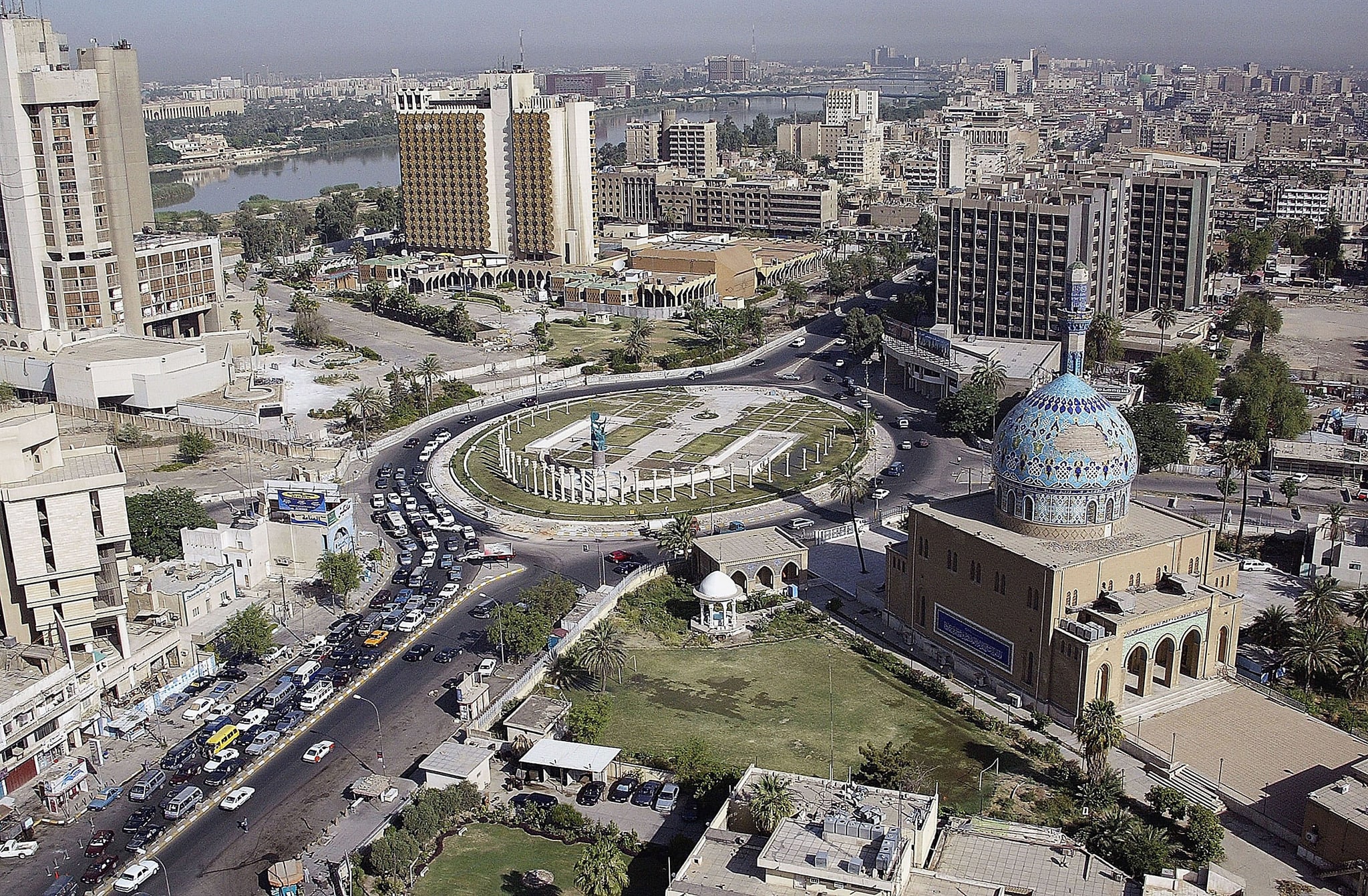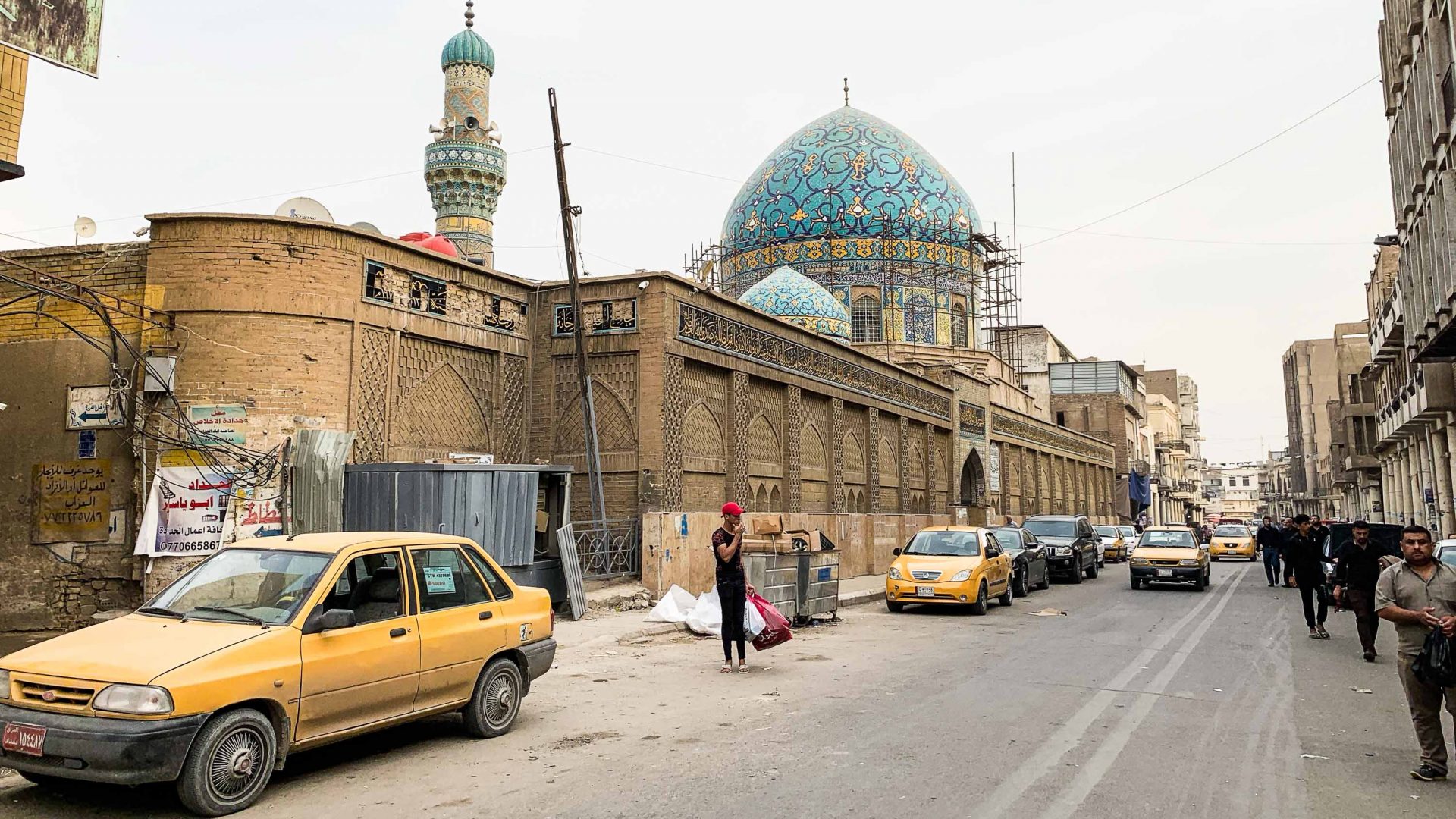Understanding Time Iraq Now: A Comprehensive Guide To The Current Situation
Time Iraq now is a phrase that encapsulates the current state of a nation rich in history yet facing unprecedented challenges. From political shifts to cultural transformations, Iraq is navigating a complex landscape that demands attention and understanding. In this article, we delve deep into the nuances of Iraq's present, exploring its socio-economic dynamics, geopolitical significance, and cultural evolution. Whether you're a student of global affairs or simply curious about this pivotal region, this guide aims to provide clarity and insight into the factors shaping Iraq today.
As we examine time Iraq now, it becomes evident that the country is at a crossroads. With a population striving for stability and prosperity, Iraq is grappling with issues like economic recovery, governance, and regional relations. The recent past has seen significant developments, including efforts to rebuild infrastructure, foster diplomatic ties, and address internal conflicts. These efforts underscore the resilience of the Iraqi people and their determination to forge a brighter future despite the hurdles.
Understanding time Iraq now also requires a closer look at the global context. Iraq's strategic location and vast natural resources make it a focal point for international stakeholders. From energy markets to security alliances, the decisions made within Iraq's borders have far-reaching implications. This article will explore how Iraq is positioning itself in the global arena, the challenges it faces, and the opportunities that lie ahead. By the end of this guide, you'll have a comprehensive understanding of why time Iraq now matters more than ever.
Read also:Exploring The Johnny Depp Race A Deep Dive Into His Life Career And Cultural Impact
Table of Contents
- Who is Leading Iraq Now? A Look at the Current Leadership
- What Are the Key Political Challenges Facing Iraq Today?
- Is Iraq on the Path to Economic Recovery?
- How is Iraqi Culture Evolving in the Modern Era?
- Why is Iraq's Geopolitical Role Important Right Now?
- What Are the Social Dynamics Shaping Time Iraq Now?
- How is Iraq Navigating Its International Relations?
- What Does the Future Hold for Iraq?
Who is Leading Iraq Now? A Look at the Current Leadership
Understanding time Iraq now begins with examining the individuals steering the nation's course. Leadership plays a pivotal role in shaping policies, fostering stability, and addressing the needs of the population. Below is a table summarizing key details about the current leadership in Iraq.
| Name | Position | Term Start | Background |
|---|---|---|---|
| Abdul Latif Rashid | President | October 2022 | Engineer and politician with experience in water resource management. |
| Mohammad Shia' Al-Sudani | Prime Minister | October 2022 | Former minister with a focus on governance and public service. |
The leadership's ability to navigate the complexities of time Iraq now is crucial for the nation's progress. With a focus on unity and reform, these leaders are tasked with addressing both immediate challenges and long-term goals.
What Are the Key Political Challenges Facing Iraq Today?
When discussing time Iraq now, it's impossible to overlook the political challenges that dominate the national conversation. From governance issues to regional tensions, Iraq's political landscape is fraught with complexities.
How Are Governance Issues Impacting Stability?
One of the most pressing concerns is the inefficiency in governance. Corruption, bureaucratic delays, and a lack of transparency have hindered progress. These issues not only erode public trust but also impede economic growth and social development.
What Role Do Regional Tensions Play?
Iraq's geopolitical position places it at the center of regional power struggles. Neighboring countries often exert influence, complicating efforts to maintain sovereignty. Balancing these external pressures while addressing domestic needs is a delicate task for the government.
Is Iraq on the Path to Economic Recovery?
Economic recovery is a cornerstone of time Iraq now. With vast oil reserves and a young, dynamic population, Iraq has the potential to become a regional powerhouse. However, several obstacles must be overcome to realize this potential.
Read also:Jane Elliott Family Exploring The Life And Legacy Of An Antiracism Advocate
What Are the Main Economic Challenges?
Despite its natural resources, Iraq faces significant economic hurdles. These include:
- Over-reliance on oil revenues
- High unemployment rates, especially among youth
- Infrastructure deficits due to years of conflict
Addressing these challenges requires a multi-faceted approach, including diversification of the economy, investment in education, and infrastructure development.
How Are International Partners Supporting Recovery Efforts?
International organizations and foreign governments are playing a vital role in Iraq's recovery. For instance, the World Bank has launched initiatives to support economic reforms and improve public services. Such collaborations are critical for sustainable growth.
How is Iraqi Culture Evolving in the Modern Era?
Time Iraq now is not just about politics and economics; it's also about cultural evolution. Iraqi culture, known for its rich history and diversity, is undergoing significant changes as the nation rebuilds and reconnects with its heritage.
What Are the Key Cultural Trends Today?
Modern Iraqi culture is characterized by:
- A resurgence of traditional arts and music
- Growing interest in digital media and technology
- Increased participation of women in public life
These trends reflect a society eager to embrace its past while looking toward the future.
How is Globalization Influencing Iraqi Culture?
Globalization has introduced new ideas and influences, fostering a dynamic cultural environment. However, it has also sparked debates about preserving authenticity and resisting homogenization.
Why is Iraq's Geopolitical Role Important Right Now?
Iraq's geopolitical significance cannot be overstated in the context of time Iraq now. Its strategic location and resources make it a key player in regional and global affairs.
How Does Iraq's Location Impact Its Geopolitical Role?
Situated between major powers like Iran and Turkey, Iraq serves as a bridge between East and West. This position makes it a critical node for trade, energy, and diplomacy.
What Are the Implications of Iraq's Energy Resources?
With some of the world's largest oil reserves, Iraq is a linchpin in global energy markets. Its stability directly affects oil prices and supply chains, making it a focus of international attention.
What Are the Social Dynamics Shaping Time Iraq Now?
Social dynamics are a vital aspect of understanding time Iraq now. From demographic shifts to social movements, these factors influence the nation's trajectory.
How is the Youth Population Driving Change?
With over 60% of the population under 25, Iraq's youth are a powerful force for change. They are increasingly vocal about issues like unemployment, education, and political reform.
What Role Do Women Play in Shaping Society?
Women are breaking barriers in various fields, from politics to entrepreneurship. Their contributions are reshaping societal norms and driving progress.
How is Iraq Navigating Its International Relations?
Time Iraq now is marked by efforts to strengthen international ties. Diplomacy plays a crucial role in securing support and fostering collaboration.
What Are Iraq's Key Diplomatic Priorities?
Iraq is focusing on:
- Strengthening alliances with neighboring countries
- Engaging with global powers to attract investment
- Participating in international forums to address shared challenges
How Are Regional Conflicts Impacting Diplomacy?
Ongoing conflicts in the region complicate diplomatic efforts. Iraq must navigate these tensions while pursuing its national interests.
What Does the Future Hold for Iraq?
As we reflect on time Iraq now, it's clear that the nation is at a pivotal moment. The future holds both challenges and opportunities, and the choices made today will shape its trajectory.
What Are the Key Opportunities for Growth?
Iraq has the potential to:
- Diversify its economy beyond oil
- Invest in education and innovation
- Strengthen its democratic institutions
What Challenges Must Be Overcome?
Key challenges include addressing corruption, improving security, and fostering inclusive development. Overcoming these will require sustained effort and collaboration.
FAQs
What does "time Iraq now" signify?
"Time Iraq now" refers to the current state and developments within Iraq, encompassing its political, economic, social, and cultural dimensions. It highlights the nation's efforts to rebuild and redefine itself in the modern era.
Why is Iraq's geopolitical role significant today?
Iraq's strategic location and energy resources make it a key player in regional and global affairs. Its stability impacts energy markets, trade routes, and diplomatic relations.
How is Iraq addressing its economic challenges?
Iraq is working to diversify its economy, attract foreign investment, and improve infrastructure. International partnerships and reforms are central to these efforts.
Conclusion
Time Iraq now is a phrase that encapsulates both the challenges and opportunities facing this resilient nation. From political reforms to cultural revival, Iraq is navigating a complex path toward stability and prosperity. By understanding the factors shaping its present and future, we gain valuable insights into a country that continues to play a vital role on the global stage.
Article Recommendations

